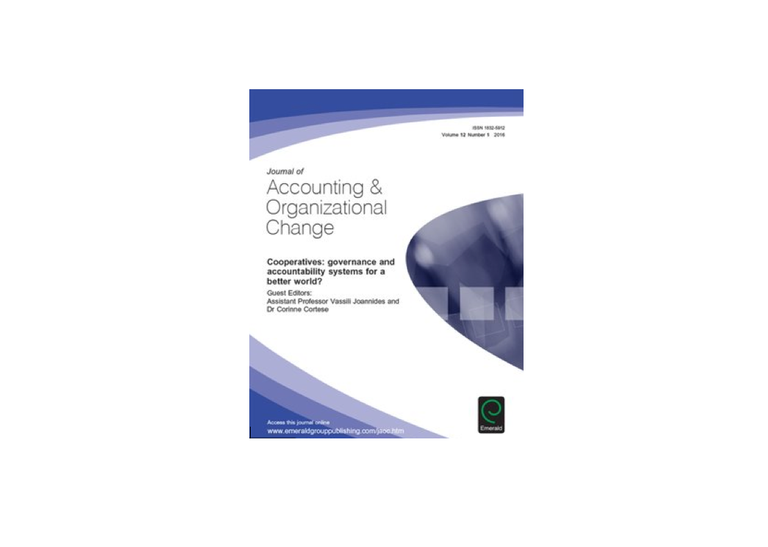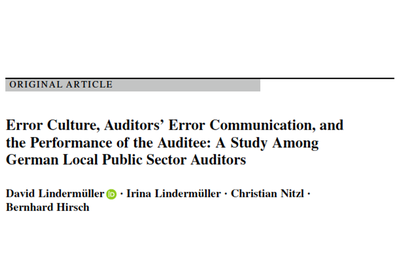
Journal of Accounting & Organizational Change
21 Februar 2018
Schauß, Joachim; Hirsch, Bernhard; & Sohn, Matthias (2014). Functional Fixation and the Balanced Scorecard. Journal of Accounting & Organizational Change, 10(4), 540-566.
Abstract
Purpose – This paper aims to examine how balanced scorecard (BSC) users change their judgement processes balanced scorecard (BSC) to qualitative changes in the BSC. Prior experimental studies have found that decision-makers do not fully adapt their judgements according to changes in financial reports, known as functional fixation. Although previous research has examined functional fixation in several management accounting-related disciplines, the research has not been completely successful in developing a deeper understanding of the cognitive processes that are responsible for the occurrence of this judgemental bias.
Design/methodology/approach – To fill this gap, a combination of structural modelling and a process tracing method that monitors participants’ information acquisition to better understand the underlying cognitive processes that affect BSC users’ judgements is used.
Findings – Overall, the results indicate that functional fixation is present both from an input– output (structural modelling) and a process tracing perspective. Stable general individual differences, particularly in terms of intuitive versus deliberative preferences in decision-making, influence the probability of functionally fixated behaviour. Additionally, previous findings concerning the over-reliance on financial information in the BSC setting is replicated. Using process data, it was found that BSC users rely more on financial measures than on non-financial measures in the pre-decisional phase of exercising their judgement.
Originality/value – This paper contribute to management accounting research on the BSC by investigating two cognitive biases (functional fixation and overreliance on financial measures) from an input– output and a process tracing perspective.






